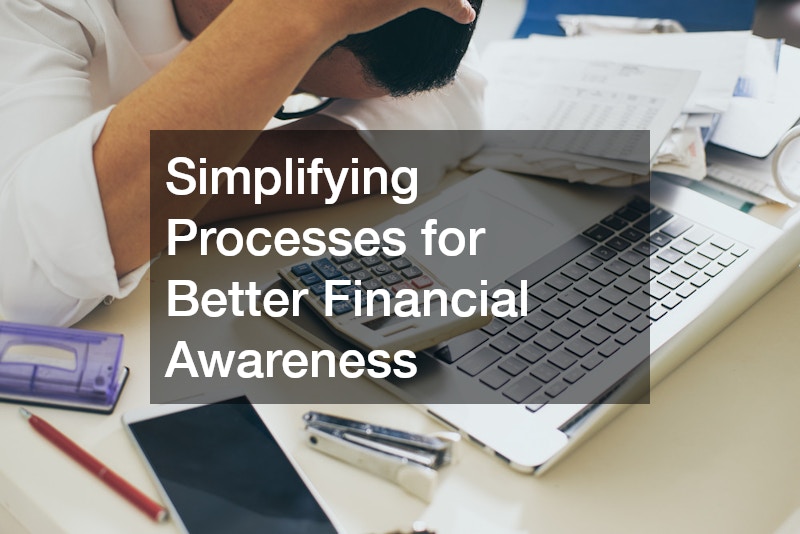Running a small business requires a careful balance of spending, planning, and saving. Every dollar counts, and how you allocate your resources can make the difference between thriving and merely surviving. Simple small business budget tips can go a long way toward improving financial stability and growth potential. It’s not always about cutting costs dramatically, it’s often about finding smarter ways to spend and invest. Whether you’re managing a new startup or a long-standing company, building better budgeting habits ensures sustainability and prepares your business for the unexpected.
Budgeting starts with understanding your cash flow. You need a clear picture of where your money is going, what’s bringing in revenue, and which expenses can be trimmed without hurting performance. Even small savings can add up significantly over time, and investing wisely in areas that enhance efficiency pays dividends down the line. From technology upgrades and service negotiations to improved maintenance and staffing decisions, there are countless ways to keep costs manageable. This article explores simple, actionable strategies that small businesses can apply to make budgeting easier, smarter, and more effective. Let’s look at practical ways to stretch your dollars and keep your business on track financially.
1. Strengthening Your Foundation for Long-Term Success

A strong financial foundation begins with understanding how to manage essential maintenance costs. For instance, many businesses depend on reliable building upkeep and exterior care, which can become expensive without proper planning. Partnering with a trusted roofing contractor can help protect your property investment while preventing more significant costs down the road. Regular inspections and minor repairs can stop leaks or damage before they escalate into emergencies that could disrupt business operations.
Preventive measures like these should be built into your annual budget rather than treated as surprise expenses. Establishing a relationship with professionals who understand your business’s physical needs can also help negotiate better pricing or long-term service agreements. The key is proactive management rather than reactive spending. Just as you wouldn’t ignore your financial reports, you shouldn’t neglect your physical infrastructure. By treating maintenance as an investment rather than an afterthought, your small business remains resilient, efficient, and ready to handle challenges without unexpected financial strain.
2. Preparing for Unexpected Operational Issues
Every business faces moments when something goes wrong, often without warning. One of the most crucial aspects of budgeting is being prepared for the unexpected. Electrical problems, for instance, can halt productivity instantly. Having a relationship with an emergency electrician ensures your operations can get back on track quickly. Setting aside funds specifically for emergency services prevents panic spending when urgent situations arise.
Instead of waiting for breakdowns, small businesses can benefit from periodic system checks and maintenance schedules. This proactive budgeting mindset allows you to forecast potential costs rather than react to surprises. Emergencies are expensive when you’re unprepared, but when they’re part of a planned financial strategy, the stress and impact are minimized. Think of it as a safeguard for your operations. Smart business budgeting is as much about readiness as it is about efficiency.
3. Building Efficiency Through Collaboration
Working with the right partners can make a significant difference in cost efficiency. When you collaborate with a general contractor for property improvements or remodeling, you gain access to bulk materials, industry expertise, and strategic project planning. This collaboration can lead to major savings in both time and money. Rather than hiring multiple vendors or tackling upgrades yourself, a general contractor coordinates all elements of a project, ensuring efficiency and consistency.
For small businesses, this means fewer delays, reduced waste, and predictable costs. It’s also easier to forecast long-term maintenance needs when professionals are involved from the start. Proper communication and planning can prevent overspending on repairs or updates that weren’t budgeted for. Efficiency isn’t only about reducing costs, it’s about optimizing every dollar spent. Partnering with reputable experts often saves more in the long run than cutting corners upfront.
4. Managing Climate Control and Comfort Costs

Energy use can quietly eat into your business budget if left unmanaged. HVAC systems, in particular, are one of the biggest contributors to operational expenses. Partnering with reliable HVAC companies for regular maintenance and energy-efficient upgrades can lead to substantial long-term savings. A well-maintained system runs more efficiently, uses less power, and lasts longer, which directly impacts your bottom line.
Simple steps such as changing filters, sealing ducts, and scheduling seasonal inspections can help reduce unnecessary wear and tear. When you include these expenses in your budget, you maintain consistent comfort for employees and customers while keeping energy bills under control. Smart energy management isn’t about deprivation, it’s about sustainability and financial responsibility. Investing in efficiency today leads to smoother operations and predictable costs tomorrow.
5. Investing in Smart Utilities
Water heating is another area where small businesses can save significantly. Upgrading to a tankless water heater provides energy efficiency and reduces long-term utility costs. Unlike traditional water heaters that constantly heat large tanks, tankless systems only work when hot water is needed. This on-demand operation can cut monthly energy bills while freeing up space and requiring less maintenance.
Though the upfront cost might be higher, the long-term return justifies the investment. Smart business budgeting includes looking beyond initial expenses and considering lifecycle costs. Reducing ongoing energy use and maintenance demands is an effective way to manage your business budget more sustainably. Every small efficiency contributes to a larger financial gain, especially when multiplied across daily operations.
6. Reassessing Subscription and Vendor Costs
One overlooked area in many small business budgets is recurring expenses. Monthly subscriptions for software, memberships, or tools can accumulate quickly. It’s easy to lose track of services you no longer use or could replace with cheaper alternatives. Take time to review each vendor and service at least once a year to determine if it’s still necessary.
You may also find opportunities to renegotiate contracts or bundle services for discounts. Vendor relationships are vital, but loyalty shouldn’t mean overpaying. By streamlining your subscriptions and eliminating waste, you can reinvest those savings into growth areas of your business. Budgeting effectively isn’t about cutting everything, it’s about prioritizing what delivers real value and letting go of what doesn’t.
7. Protecting Your Assets with Reliable Technology

A crucial part of cost-effective business management involves protecting your investments. Installing business security cameras can prevent losses and increase safety for your team and customers. Modern systems offer remote access, motion alerts, and cloud storage, giving you peace of mind and control even when you’re away. The cost of installing these systems is minimal compared to the potential savings from preventing theft or damage.
Including this expense in your budget ensures ongoing protection without disrupting cash flow. Additionally, security technology can reduce insurance premiums, adding another layer of savings. Businesses that proactively protect their property position themselves for stability and confidence. The right technology investments pay for themselves by reducing risk and promoting long-term success.
8. Prioritizing Reliable Infrastructure
Keeping your building’s infrastructure functioning properly is vital for maintaining steady operations. Hiring a professional electrician for routine maintenance or installations can prevent costly electrical failures and ensure safety compliance. By addressing small electrical issues early, you avoid more significant damage that could interrupt daily operations or require expensive emergency services.
Budgeting for periodic inspections helps create financial predictability. It also ensures that your business environment remains safe and efficient for employees and customers. Properly maintained systems tend to consume less energy and reduce repair costs over time. Making electrical upkeep a consistent line item in your business budget is a smart way to preserve functionality and avoid unnecessary financial surprises.
9. Strengthening Physical Security and Access Control
For small businesses, security and accessibility are closely tied to customer trust and operational safety. Working with local locksmiths to install high-quality locks, rekey doors, or upgrade security features can enhance protection while fitting comfortably within a modest budget. Rather than waiting until an issue arises, scheduling regular security reviews ensures your systems stay current.
Modern locking systems can integrate with digital access controls and surveillance tools, offering added convenience. Budgeting for these upgrades demonstrates foresight and professionalism. While it may seem like a small detail, improved access control can prevent significant losses and liability risks. Protecting your assets proactively is always less expensive than reacting to problems later.
10. Simplifying Processes for Better Financial Awareness

An essential budgeting habit is simplifying and organizing your processes. When your financial data is clear and centralized, decision-making becomes easier. Many small businesses benefit from adopting digital accounting tools or working closely with bookkeepers who understand your industry. Simplifying processes also helps track trends and identify potential savings faster.
By streamlining expense reports, automating invoices, and setting spending limits, you maintain better control of your budget. Transparency builds accountability, and accountability fosters smarter choices. Even small administrative improvements can translate into significant time and cost savings. Efficiency is one of the most effective cost-control strategies for small business owners.
11. Maintaining Business Continuity During Outages
Unexpected power outages can disrupt productivity and result in revenue loss. Budgeting for a reliable backup plan, such as hiring a generator installer, ensures your business can continue operations without interruption. Generators are invaluable during storms, maintenance events, or emergencies. They not only keep essential systems running but also protect inventory and prevent data loss.
Including this investment in your budget gives you peace of mind and operational stability. The cost of downtime often exceeds the investment in preparedness. Maintaining continuity during outages shows professionalism and builds client trust. A small upfront cost for reliable backup power can save substantial amounts in lost revenue and repairs.
12. Enhancing Brand Identity for Sustainable Growth
Your brand is one of your most valuable assets, and effective branding should be a part of your budget plan. Investing in a custom business sign is an excellent way to attract attention and reinforce your business identity. A high-quality, well-designed sign creates a lasting first impression and helps establish credibility. While it may seem like a visual investment, it also serves as a long-term marketing tool that continuously promotes your business without ongoing costs.
When budgeting for marketing, consider cost-effective options that offer continuous visibility. Outdoor signage provides round-the-clock exposure and builds recognition in your community. Every small business benefits from smart marketing that doesn’t require constant spending. A single upfront investment in strong branding can yield significant returns in awareness and trust. Think of your sign as both a marketing asset and a representation of your company’s professionalism and pride.
Creating and maintaining a small business budget is about more than just controlling expenses, it’s about empowering growth. By taking the time to plan ahead, evaluate spending, and invest wisely, you can keep your business running smoothly even when challenges arise. Simple changes, such as improving efficiency, maintaining essential systems, and managing emergencies proactively, add up to long-term financial stability.
From operational upgrades to preventive maintenance, every strategic decision contributes to a healthier financial future. The best budgets are flexible, realistic, and designed with sustainability in mind. By applying these practical tips and focusing on value rather than just cost-cutting, small business owners can protect their investments while positioning their companies for success. Building a strong financial foundation today ensures that your business thrives tomorrow, no matter what challenges or opportunities come your way.
It’s also essential to understand that budgeting is an ongoing process rather than a one-time task. As your business grows, expenses and priorities evolve, and your budget should reflect those changes. Regularly reviewing your financial statements, tracking cash flow, and analyzing patterns allows you to make informed adjustments that support your goals. Setting aside funds for emergencies or future investments ensures your business remains adaptable and resilient. A strong budget empowers decision-making, giving you the confidence to pursue new opportunities without jeopardizing stability.
Finally, remember that budgeting is not just about limiting what you spend, it’s about optimizing how you spend it. Investing in staff training, technology, and marketing often leads to higher returns than constant cost-cutting. Every dollar should serve a purpose, whether it’s improving operations, boosting productivity, or enhancing your brand’s presence. By cultivating discipline, foresight, and consistency in your budgeting process, you create a business model that not only survives but continues to grow stronger with each passing year.



